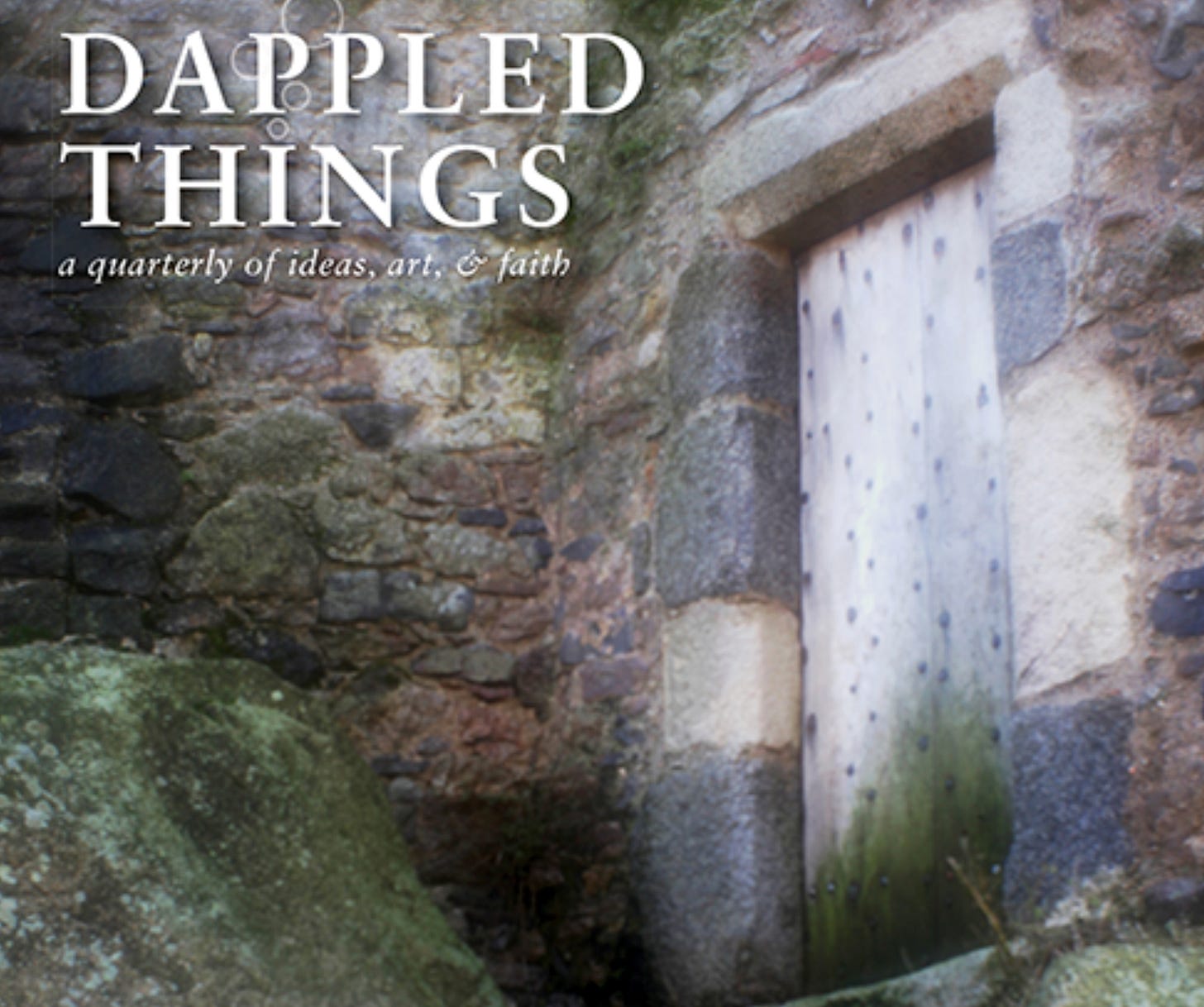Phantom Limb
Story published in Dappled Things that received an Honorable Mention for the J.F. Powers Prize for Short Fiction.
The sun off the buildings cut sharply in places against her eyes. The corner of the city looked the same as it always did, boxy storefronts drained of vibrant color, cars below flowing by like metallic debris on a black river, the rigid shadows of stoic, high-rising towers. Yet something seemed different. It all seemed fresher, more promising. It was a familiar but old feeling. The urban walls pruned of their menace, loosened by loss. For years she had looked out over the city and regarded it with stony apathy, annoyance.
Julia glided across the room from the window to pull out a long, flowing silver coat tucked away in her closet. All these years, she thought, and now she can throw it on and set out and about. She slipped in each arm, reassured that the cloth was tailored just for her. The small hairs of the dark collar rubbed against her exposed neck beneath her wintered short hair. She stood up straight in front of a hinged oval mirror to see herself in full. Her eyes caught themselves as she did, bluer than she remembered. Why hadn’t she done this years ago? she wondered, but only for an instant. She could never have donned something like this without an amused glance or hoarse sigh. He would have thought she looked preposterous, an ostrich of a woman dressed in gaudy clothing to hide her frail body and wrinkled white skin with its splotchy purple. Forget him. She put her hands to her hips and bent away from her reflection to expose the back of the coat, a sheath of silver fabric. What a beautiful coat. It had been such a shame that it hung dormant in a dusty closet for so long. Well, not anymore.
She walked out to the hallway of her apartment, delighted, and stood in front of the elevator. She just missed it, but she had all the time in the world now. It was only late morning, and the day was just settling into its own. She saw a bright, green EXIT over another open door. “Plenty of time, Jules.” She said it to herself boldly. She walked through the door. Her hand clutched the banister and her feet took the steps one at a time. She picked up her pace as she neared the bottom, confident in her legs that now felt stronger. She always had such wonderful, bronzed legs. And it wasn’t only her legs, either. Her small nose folded square on her face, the way one dimple pinched her face when she smiled, her sleepy eyes that whispered with their lashes. She was beautiful. Of course, that was years ago. A day out, it must have been years since she even heard herself say such a thing. She said it out loud, twisting her lips at their corners into a triumphant grin as she did.
“Let me get that for you, ma’am,” said a young man in khakis and a long trench coat. He held a collection of groceries, a carton of eggs knifing out of the brown bag. He cradled the paper bag like a newborn and pushed open the door with his free hand.
“Thank you, sir. How nice of you.” She pushed out into the cold morning, pleased with the courtesy. The burst of air pricked her face like a swarm of pellets. She folded her arms and stood still for a moment. She breathed the inside warmth into the icy blue. It was cold, but no colder than any other New England winter. She had endured too many by now to complain. She had sworn to bury the complaining with him—both of them now buried, lifeless, and quiet. She walked on the sidewalk as pedestrians maneuvered around her.
If she thought about it long enough, the fact that she wasn’t all that upset was somewhat upsetting. She resented having to pretend for the sake of appearance, and at the funeral when her distant relatives, people as alien as the feral cats rummaging through trash on the street below her home, and her old friends, many of whom she hadn’t spoken to in over a decade, came up to her and offered words of consolation, she looked into their faces with palpable guilt, hoping it would pass as sorrow. Good grief. It was exhausting to nod at all of them intently and thank them for their hollow words of comfort. They didn’t even know her, but here they were bending over backwards to show they cared, that they had always cared despite their absence all these years.
Continue reading this story in Dappled Things.




